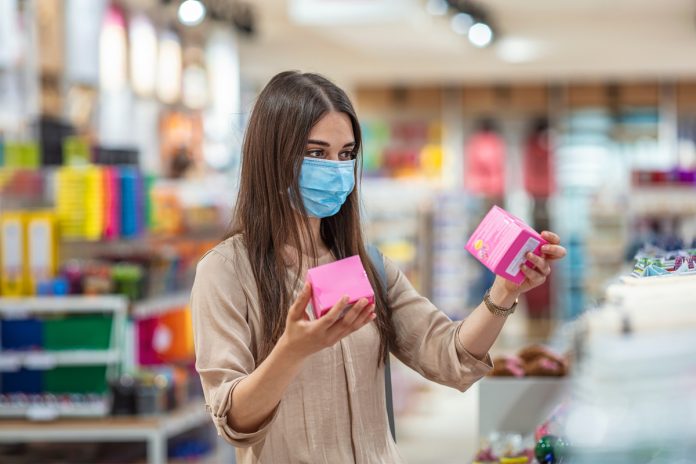Remember December 2019, when many of us were crammed into the Las Vegas Convention Center for MJBizCon? We were talking about the future of cannabis and trends we expected to see in 2020 as we built relationships to push us forward into the new year and new decade.
In just a few short months, all predictions about the global economy in general and the cannabis industry in particular were fundamentally altered.
Even as companies struggled to figure out this new reality, certain elements started to come into focus. Businesses with strong leadership and values were poised for the most success. Business models built on long-term sustainability and compliance were better equipped for unprecedented situations. Most of all, while things changed rapidly due to COVID-19, the trends it accelerated already were present back in 2019.
Delivery and pickup
Across the patchwork of state-legal cannabis markets, consumers began to display dissatisfaction long before the pandemic hit. While some were happy simply to be able to walk into a dispensary and purchase products, many expected more convenient shopping options, including drive-through, pickup, and delivery.
Social distancing made those options imperative. Patients living under shelter-in-place orders were unable to leave their homes to make purchases, and those in less strict circumstances wanted a safer way to obtain products. Even states that previously hadn’t allowed pickup or delivery quickly relaxed their regulations to classify cannabis “essential” and permit curbside product handoff. Delivery platforms saw explosive growth as new dispensaries searched for ways to serve their communities.
Even as lockdowns are relaxed and social distancing rules start to fade, I predict people will continue to demand the experience to which they became accustomed during the height of the pandemic. In-store retail across a range of economic sectors has changed. Unless dispensaries can offer a unique reason for consumers to come inside, many customers will continue to want to get their cannabis purchases in as quick and convenient a way as possible. As a result, a post-pandemic reality will include an expanded role for pickup and delivery.
Contactless payment
As a result of social distancing and a heightened awareness of germs, both consumers and employees have shown greater resistance to using cash across all consumer market segments. In grocery stores and other retail establishments, people opt for contactless forms of payment. Just swiping a credit card or inputting a PIN on a shared device can make people nervous.
Most marijuana-related businesses (MRBs) long ago resigned themselves to being classified “cash-intensive” by banks and regulators. Because of the cost of cash, and the inconvenience and risks of cash handling, dispensaries sought other payment options even before the pandemic made legal tender a disease vector.
While credit and debit cards still have not become viable in most cases, contactless payment methods like mobile apps are gaining acceptance. Not only do they address health concerns, but they also offer quick, easy transactions.
In the same way I anticipate people forever will be more aware of how they wash their hands, I expect they will demand more convenient, efficient, and contactless payment methods.
Legalization
In recent years, political discussions have moved beyond merely legalization. Legislators and lobbyists have expressed outrage at the disparity between the fallout from the “war on drugs” and current policy: How can so many businesses be benefitting from the legal cannabis market while so many people are serving time in prison for cannabis-related drug convictions?
The pandemic has highlighted this disconnect even more, particularly as dispensaries are deemed essential businesses. How can the same product that is considered essential during a pandemic also be worthy of incarceration?
Additionally, as government spending has ramped up to support the economy during fallout from COVID-19, many states and even the federal government are eyeing the potential tax revenue from cannabis legalization. While most houses of government currently are focused on the immediate needs of their constituents, the pandemic could accelerate legalization measures in the future.
Consumer behavior
At the start of the COVID-19 pandemic in the U.S., we saw panic purchasing and hoarding behavior. People stocked up on toilet paper, gasoline, baby food, and cannabis. Although some consumers opted for edibles rather than flower, customers went to dispensaries in droves to ensure they had the medical or recreational product they needed.
As pickup and delivery options continue to expand, we’re also seeing new consumer opportunities. Existing cannabis consumers want continual access to their preferred products and will access them in whatever way they’re available. New customers, though, expect an “Amazon-like” experience. This means shopping that is consistent, reliable, convenient, and modern.
Being able to pivot your approach or your business model while staying true to your core values is the best indicator of long-term success.
With the expansion of streamlined delivery options, dispensaries now have access to a new type of consumer: people who might not have been willing to visit a dispensary but are open to buying products through the new platforms. These consumers might be turning to cannabis products to help with increased stress and anxiety during the pandemic but probably will continue to purchase cannabis even as the situation transitions into our society’s new normal, whatever that turns out to be.
Business lessons
In December 2019, many MJBizCon attendees also visited Las Vegas dispensaries. Some of the area’s largest and most popular dispensaries are tourist-focused. One retail-experience location in particular also is one of the most active dispensaries in the country, even though the majority of its transactions come from out-of-state visitors who make only one purchase.
With the collapse of tourism across the country, Las Vegas has been hit particularly hard. Suddenly, the most successful dispensaries don’t have a steady influx of visitors. Meanwhile, other dispensary chains that operate medical and/or recreational locations across a variety of states appear to be better positioned.
This serves as an important lesson for dispensaries that are heavily reliant on tourism. Similar stories have echoed across Colorado, Massachusetts, and other recreational markets.
The cannabis industry always is changing. In my more than six years working in this market, I’ve learned the most important characteristic for anyone in cannabis is to be adaptable. Laws change, regulators shift perspectives, and consumer preferences can vary. Being able to pivot your approach or your business model while staying true to your core values is the best indicator of long-term success.
The COVID-19 pandemic is the latest event to alter the cannabis industry and will have a lasting impact. But the industry always should be prepared for another seismic event that may fundamentally reshape the way cannabis businesses can and should function. Seek partners who can help navigate changing paradigms.
 Tyler Beuerlein is chief revenue officer at Hypur, where he has been at the forefront of the company’s expansion efforts for more than four years. Hypur is a comprehensive technology provider that enables financial institutions, merchants, and consumers to transact in highly regulated industries. Beuerlein’s role touches financial institutions, government officials, regulatory bodies, and the state-legal cannabis industry. As a result, he possesses an intricate knowledge of the banking and regulatory climate.
Tyler Beuerlein is chief revenue officer at Hypur, where he has been at the forefront of the company’s expansion efforts for more than four years. Hypur is a comprehensive technology provider that enables financial institutions, merchants, and consumers to transact in highly regulated industries. Beuerlein’s role touches financial institutions, government officials, regulatory bodies, and the state-legal cannabis industry. As a result, he possesses an intricate knowledge of the banking and regulatory climate.











